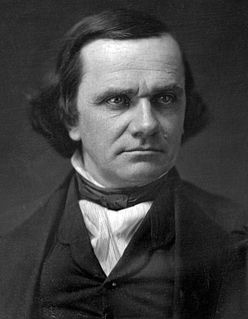A Quote by Ayn Rand
No advocate of reason can claim the right to force his ideas on others. No advocate of the free mind can claim the right to force the minds of others. No rational society, no co-operation, no agreement, no understanding, no discussion are possible among men who propose to substitute guns for rational persuasion.
Related Quotes
If the Humanists wish to be champions of reason, they should consider the following: just as they would not admit mystics into their camp, since no rational discussion is possible with men who substitute supernatural revelations for rational evidence-so they cannot admit advocates of force into their camp, because no rational discussion or agreement is possible with men who substitute guns for rational persuasion.
A libertarian is a person who believes that no one has the right, under any circumstances, to initiate force against another human being for any reason whatever; nor will a libertarian advocate the initiation of force, or delegate it to anyone else. Those who act consistently with this principle are libertarians, whether they realize it or not. Those who fail to act consistently with it are not libertarians, regardless of what they may claim.
Obey; this may be right; but beware of reverence.... Government is nothing but regulated force; force is its appropriate claim upon your attention. It is the business of individuals to persuade; the tendency of concentrated strength, is only to give consistency and permanence to an influence more compendious than persuasion.
Whatever each man can separately do, without trespassing upon others, he has a right to do for himself; and he has a right to a fair portion of all which society, with all it combinations of skill and force, can do in his favor. In this partnership all men have equal rights; but not to equal things.
Given that some social processes must convey inherent constraints, the choice is among various mixtures of persuasion, force, and cultural inducement. The less of one, the more of the
others. The degree of freedom that is possible is therefore tied to the extent to which people respond to persuasion or inducement.
There are two principles on which all men of intellectual integrity and good will can agree, as a 'basic minimum,' as a precondition of any discussion, co-operation or movement toward an intellectual Renaissance. . . . They are not axioms, but until a man has proved them to himself and has accepted them, he is not fit for an intellectual discussion. These two principles are: a. that emotions are not tools of cognition; b. that no man has the right to initiate the use of physical force against others.
In a republican nation whose citizens are to be led by reason and persuasion and not by force, the art of reasoning becomes of first importance.... Reason and persuasion are the only practicable instruments. To make way for these, free inquiry must be indulged.... Let them take arms. The remedy is to set them right as to the facts, pardon and pacify them.
The claim is also sometimes made that science is as arbitrary or irrational as all other claims to knowledge, or that reason itself is an illusion. As Ethan Allen said Those who invalidate reason ought seriously to consider whether they argue against reason with or without reason; if with reason, then they establish the principle that they are labouring to dethrone. If they argue without reason, which they must do, in order to be consistent with themselves, they are out of reach of rational conviction, nor do they deserve a rational argument.
I deny the right of Congress to force a slaveholding State upon an unwilling people. I deny their right to force a free State upon an unwilling people. I deny their right to force a good thing upon a people who are unwilling to receive it. The great principle is the right of every community to judge and decide for itself, whether a thing is right or wrong, whether it would be good or evil for them to adopt it; and the right of free action, the right of free thought, the right of free judgment upon the question is dearer to every true American than any other under a free government.
So long as men desire to live together, no man may initiate the use of physical force against others. . . . When a man attempts to deal with me by force, I answer him by force. It is only as retaliation that force may be used and only against the man who starts its use. No, I do not share his evil or sink to his concept of morality: I merely grant him his choice, destruction, the only destruction he had the right to choose: his own.
So far as discipline is concerned, freedom means not its absence but the use of higher and more rational forms as contrasted with those that are lower or less rational. A free discipline controls the individual by appealing to his reason and conscience, and therefore to his self-respect; while an unfree control works upon some lower phase of the mind, and so tends to degrade him. It is freedom to be disciplined in as rational a manner as you are fit for.
If every person has the right to defend - even by force - his person, his liberty, and his property, then it follows that a group of men have the right to organize and support a common force to protect these rights constantly. Thus, since an individual cannot lawfully use force against the person, liberty, or property of another individual, then the common force - for the same reason - cannot lawfully be used to destroy the person, liberty, or property of individuals or groups.
When it is established that government by right can take wealth from some and give it to others. When a society establishes criminals-by-right and looters-by-law, men will use force to seize the wealth of disarmed victims. Such looters believe it safe to rob defenseless men, once they have passed a law to disarm them. But their loot becomes the magnet for other looters, who get it from them as they got it. Then the race goes, not to the ablest at production, but to those most ruthless at brutality. When force is the standard, the murderer wins over the pickpocket.

































